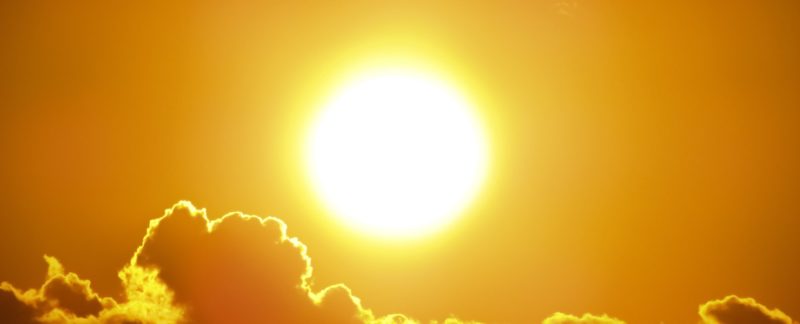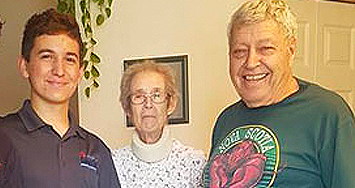
This week, Calgary is expected to experience temperatures above the average, peaking at 27 degrees. While this may not appear excessively hot, it can still lead to heat stroke and other health issues if precautions are not taken. Here are the three primary heat-related illnesses and tips on how to avoid them.
High temperatures can lead to three main conditions: heat stroke, heat exhaustion, and heat hives.
Heat stroke
The human body's normal temperature is about 37 degrees. In order for the body to stay within safe limits of this temperature, it must get rid of its excess heat. When your body is faced with internal or external factors that raise its temperature, like a steaming hot day, the brain sends signals that begin cooling mechanisms such as sweating. Cardiologist Dr. Kevin Campbell explained that when a heat stroke occurs, our bodies are unable to keep up with the cooling demands that a very hot and humid day can create.
This can occur easily in Alberta because of its natural humidity. "Our bodies are equipped to regulate temperature through perspiration. In cases of severe heat stroke, individuals may find that they have stopped sweating," Campbell stated. This frequent summer ailment usually results from extended exposure to elevated temperatures. Additional symptoms of heat stroke include fainting, confusion, absence of sweating, nausea, vomiting, seizures, rapid and shallow breathing, a racing heart, and headaches. Anyone can experience heat stroke, but certain groups are more vulnerable. "Infants, the elderly, and individuals with chronic illnesses like heart disease, lung problems, asthma, and diabetes are significantly more at risk than others," Dr. Campbell noted.
Heat Exhaustion
Heat exhaustion is less severe than heat stroke, but its cause is similar. It occurs when your body temperature rises and is often linked to dehydration. "Heat exhaustion typically results from a sudden exposure to high temperatures. It can happen during physical activity, outdoor exercise, or work in hot conditions," Dr. Ahn explained. Unlike heat stroke, when heat exhaustion strikes, you may experience excessive sweating. Additional symptoms include headaches, fainting, intense thirst, dizziness, nausea, vomiting or diarrhea, muscle cramps, fatigue, and a quickened heartbeat. Furthermore, heat exhaustion can frequently lead to heat stroke.
Thinking about air conditioning? How about some free information on air conditioners!
Heat Hives
Heat hives are a response to sweat triggered by heat or excessive temperature. They often appear when you are sweating due to exercise, feeling anxious, or simply experiencing warmth. This is one of the most prevalent forms of hives and affects at least 15 percent of people. The hives represent an allergic response, specifically an immune reaction to heat itself and its effects on the skin, as noted by Dr. Ahn. Typically, the hives lead to very itchy, raised circular patches on the skin.
Prevention
But how do you prevent these conditions from happening?
When faced with extreme heat, the first step is to eliminate your exposure to it, according to Dr. Albert Ahn, an internal medicine expert at NYU Langone, in a statement to Fox News. A practical way to achieve this is by seeking a cooler environment, such as a space with air conditioning. It's crucial to recognize that overheating can also occur indoors if your home lacks proper ventilation, which makes having air conditioning even more vital during the warmer months. Another effective method to avoid heat-related issues is to maintain hydration and ensure your electrolyte levels are adequate. While drinking water is beneficial, without sufficient electrolytes, your body can start to fail, making them essential on hot days. In summary, be prepared this summer by having plenty of water and an air conditioning system to ensure your safety. Rely on Alberta Indoor Comfort for your air conditioning needs. Contact us now for a complimentary inspection or email us for free advice at Experts@AlbertaIndoorComfort.com.
If you enjoyed this article, you may want to read our article on Wild Fire Smoke this year!
Information borrowed from The Weather Network and Fox News.
Quotes from Dr. Albert Ahn

Keeping Our Families Safe: A Calgary Mom’s Guide to Boil Water Advisories After the Water Main Break
The Water Main Break in Calgary & Its Extensive Effects At the height of the incident, vehicles were caught in















